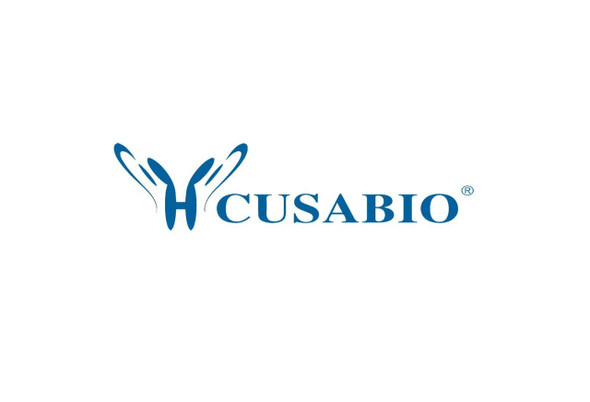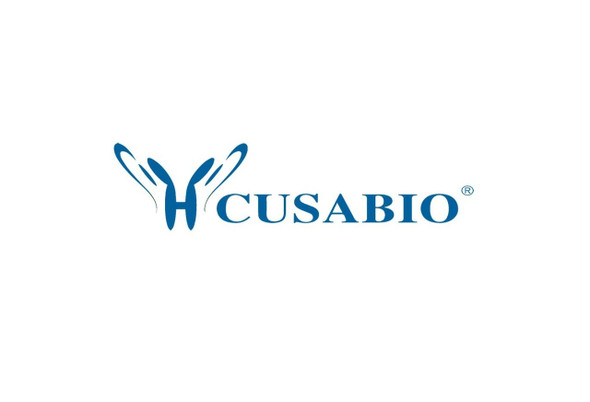Cusabio Human Recombinants
Recombinant Human Anthrax toxin receptor 1 (ANTXR1), partial | CSB-YP001832HU
- SKU:
- CSB-YP001832HU
- Availability:
- 25 - 35 Working Days
Description
Recombinant Human Anthrax toxin receptor 1 (ANTXR1), partial | CSB-YP001832HU | Cusabio
Alternative Name(s): Tumor endothelial marker 8
Gene Names: ANTXR1
Research Areas: Tags & Cell Markers
Organism: Homo sapiens (Human)
AA Sequence: EDGGPACYGGFDLYFILDKSGSVLHHWNEIYYFVEQLAHKFISPQLRMSFIVFSTRGTTLMKLTEDREQIRQGLEELQKVLPGGDTYMHEGFERASEQIYYENRQGYRTASVIIALTDGELHEDLFFYSEREANRSRDLGAIVYCVGVKDFNETQLARIADSKDHVFPVNDGFQALQGIIHSILKKSCIEILAAEPSTICAGESFQVVVRGNGFRHARNVDRVLCSFKINDSVTLNEKPFSVEDTYLLCPAPILKEVGMKAALQVSMNDGLSFISSSVIITTTHCSDGS
Source: Yeast
Tag Info: N-terminal 6xHis-tagged
Expression Region: 33-321aa
Sequence Info: Extracellular Domain
MW: 34.4 kDa
Purity: Greater than 90% as determined by SDS-PAGE.
Relevance: Plays a role in cell attachment and migration. Interacts with Extracellular domain matrix proteins and with the actin cytoskeleton. Mediates adhesion of cells to type 1 collagen and gelatin, reorganization of the actin cytoskeleton and promotes cell spreading. Plays a role in the angiogenic response of cultured umbilical vein endothelial cells.
Reference: "Broad expression analysis of human ANTXR1/TEM8 transcripts reveals differential expression and novel splizce variants."Vargas M., Karamsetty R., Leppla S.H., Chaudry G.J.PLoS ONE 7:E43174-E43174(2012)
Storage: The shelf life is related to many factors, storage state, buffer ingredients, storage temperature and the stability of the protein itself. Generally, the shelf life of liquid form is 6 months at -20?/-80?. The shelf life of lyophilized form is 12 months at -20?/-80?.
Notes: Repeated freezing and thawing is not recommended. Store working aliquots at 4? for up to one week.
Function: Plays a role in cell attachment and migration. Interacts with extracellular matrix proteins and with the actin cytoskeleton. Mediates adhesion of cells to type 1 collagen and gelatin, reorganization of the actin cytoskeleton and promotes cell spreading. Plays a role in the angiogenic response of cultured umbilical vein endothelial cells.
Involvement in disease: Hemangioma, capillary infantile (HCI); GAPO syndrome (GAPO)
Subcellular Location: Cell membrane, Single-pass type I membrane protein, Cell projection, lamellipodium membrane, Single-pass type I membrane protein, Cell projection, filopodium membrane, Single-pass type I membrane protein
Protein Families: ATR family
Tissue Specificity: Detected in umbilical vein endothelial cells (at protein level). Highly expressed in tumor endothelial cells.
Paythway: NOD-likereceptorsignalingpathway
Form: Liquid or Lyophilized powder
Buffer: If the delivery form is liquid, the default storage buffer is Tris/PBS-based buffer, 5%-50% glycerol. If the delivery form is lyophilized powder, the buffer before lyophilization is Tris/PBS-based buffer, 6% Trehalose, pH 8.0.
Reconstitution: We recommend that this vial be briefly centrifuged prior to opening to bring the contents to the bottom. Please reconstitute protein in deionized sterile water to a concentration of 0.1-1.0 mg/mL.We recommend to add 5-50% of glycerol (final concentration) and aliquot for long-term storage at -20?/-80?. Our default final concentration of glycerol is 50%. Customers could use it as reference.
Uniprot ID: Q9H6X2
HGNC Database Link: HGNC
UniGene Database Link: UniGene
KEGG Database Link: KEGG
STRING Database Link: STRING
OMIM Database Link: OMIM









